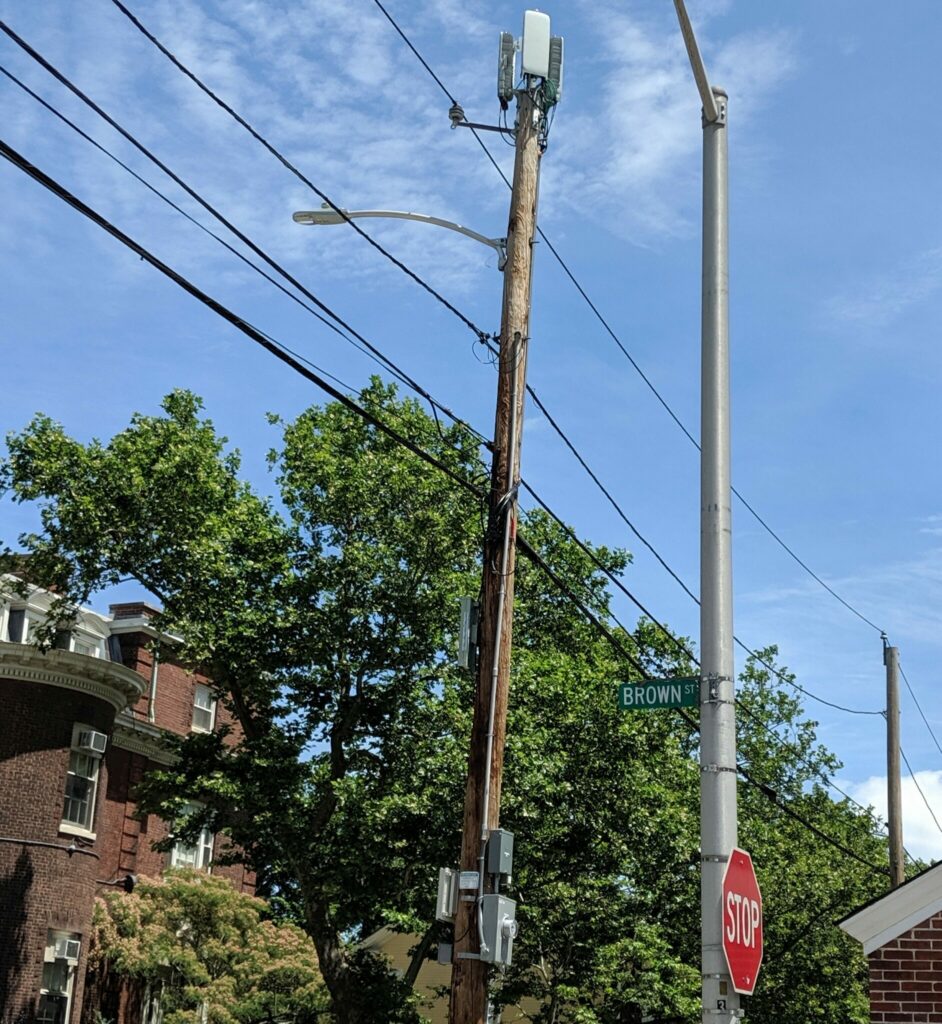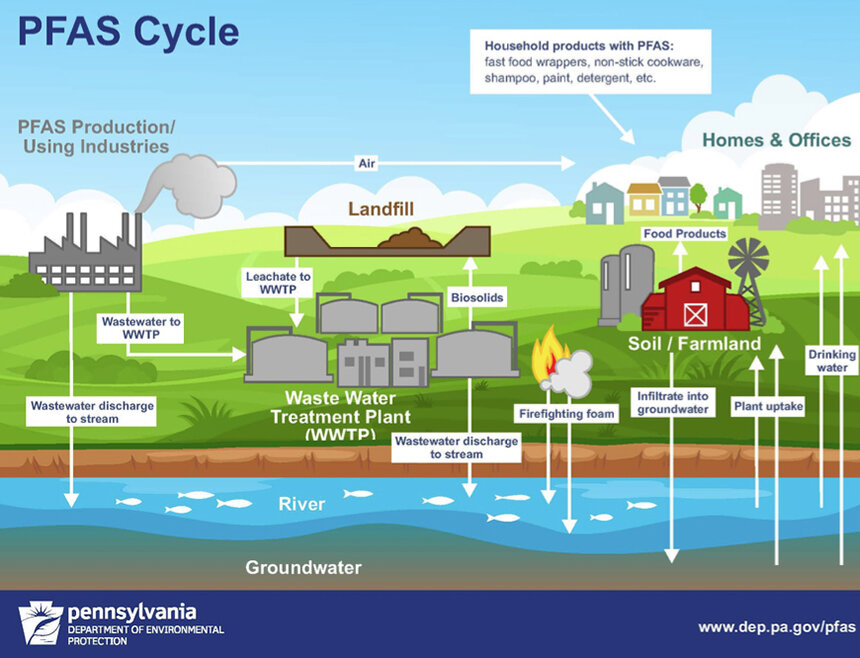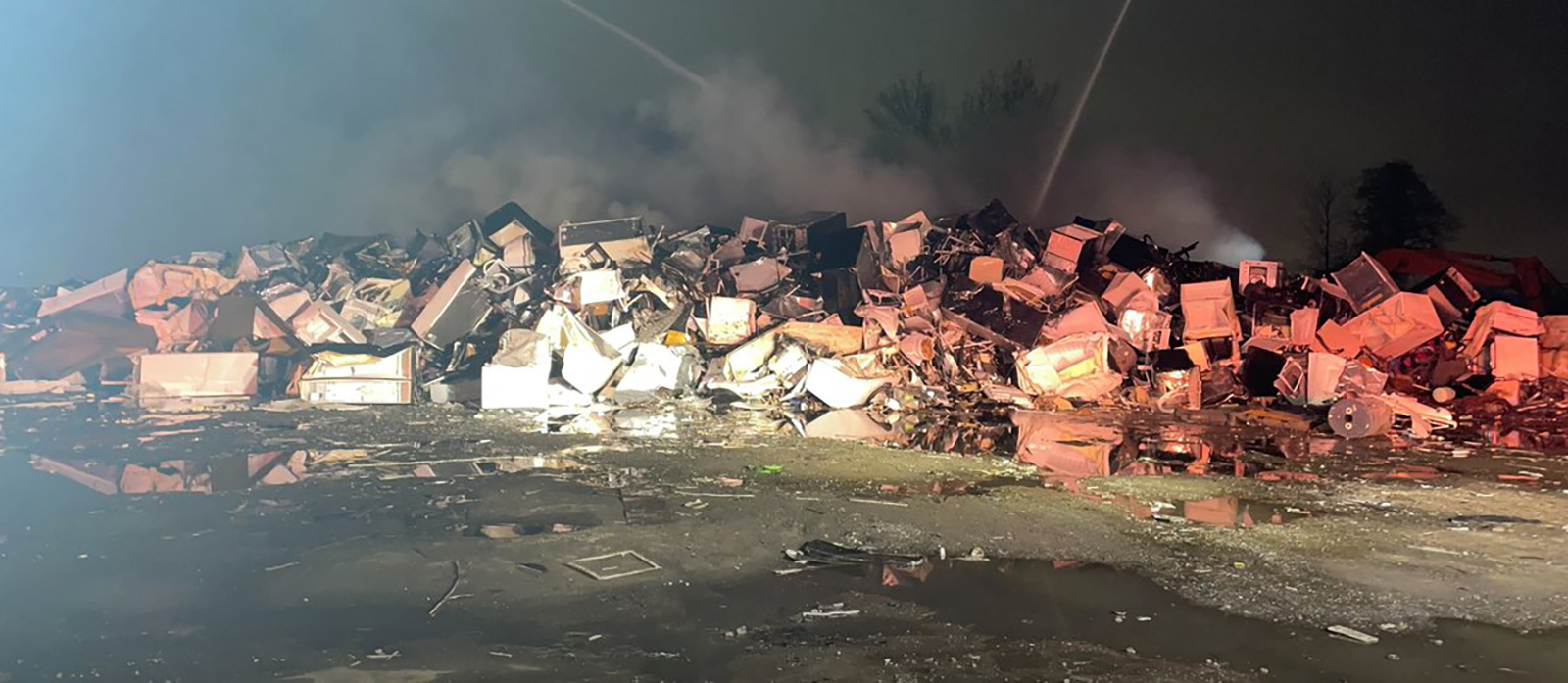Rollout of Providence’s 5G Wireless Network has Begun
Federal Communications Commission considers restricting municipalities from regulating network infrastructure for health and aesthetic reasons
July 11, 2019
PROVIDENCE — While some cities and towns around the world are still assessing the health risks associated with the arrival of the Fifth Generation (5G) wireless network, the rollout has begun in neighborhoods across Rhode Island’s capital.
On July 1, Verizon opened a limited network for its 5G cell service in portions of College Hill, Providence College/Elmhurst, Eagle Square, and an area to the west of the Whole Foods Market on North Main Street.
Verizon recently announced the new 5G service in both Providence and Denver as the latest cities to receive the service for customers with certain brands of phones.
Details of the location and type of equipment used has been hard to find out. Verizon and the city didn’t respond to ecoRI News information requests. Last October, the city signed a non-disclosure agreement with Verizon that allows the company to shield information about 5G infrastructure and the network from the public. The city signed a similar agreement with AT&T Wireless in February.
In March, the city approved siting rules for attaching small-cell wireless systems to municipal buildings, 17,000 streetlights, and 2,000 decorative lights. No zoning review is required, but the Providence Historic District Commission must review the applications if the installation is within a historic neighborhood.
The city charges $1,500 annually for 5G equipment affixed to municipal buildings and $150 annually for equipment attached to light poles.
The new siting rules also require that the installation “shall not cause radiofrequcny radiation that will put the public, city workers, or contractors in danger or expose them to emissions that require special conditions, training, or safeguards.” However, there is no information on how potential health impacts will be evaluated.
Some communities across the United States and around the world are halting the rollout of 5G networks because of potential health risks posed by the network’s equipment. Unlike existing networks that rely on data via cell towers spaced miles apart, 5G transponders and antennas must be installed at short distances within neighborhoods, typically spaced about every 200 feet on light and utility poles. This small-cell network emits a higher radiofrequency signal than existing wireless networks, which has raised concerns about possible health risks.

While utilities and municipalities receive fees from the installation of the transponders and antennas on their poles, the Federal Communications Commission (FCC) is considering allowing the equipment to be installed on private homes and businesses. The FCC is also considering restricting municipalities from regulating the equipment for health and aesthetic reasons.
“This action will pit neighbor against neighbor, tear communities apart and negatively impact property values,” according to a recent e-mail from the advocacy group Americans for Responsible Technology.
In 2017, Rhode Island joined a number of states that passed legislation making it easier for telecommunication companies to install 5G and densified 4G networks, in part by limiting local authority to regulate the networks.
Gov. Gina Raimondo and the city of Providence have enthusiastically supported 5G deployment. In April, the city issued a request for information from telecom companies.
But awareness and opposition has been growing. Local groups and individuals have been speaking out against 5G. In May, Sen. Elaine Morgan, R-Charlestown, held a meeting to draw attention to the possible health risks.
Meanwhile, some communities are putting up roadblocks to 5G technology, as they call for more research into the possible health risks posed by the networks. Cities in Belgium, Italy, and Switzerland have put holds on deployment until more studies have been conducted. Communities in California and Ohio are also restricting installation. Massachusetts, Connecticut, and New Hampshire have bills to study and/or restrict 5G exposure.




Hard to believe that a municipal government can sign an NDA preventing public knowledge of utility infrastructure. This seems to be the sort of thing that needs a legal challenge. It would be like an NDA prohibiting public knowledge of contaminated drinking water, or a leaking gas main, or hazardous electrical circuits.
These serious topics should be voted upon by the public before being put up in the our cities. We live here! We pay the taxes! We make the community! We should have a say in this! I wish more of us would stand up against 5G, it’s far more harmful then the phone companies are leading on to. We should all be protesting this!
If you get Tubi on your smart tv, please watch Resonance: Beings of Frequency.